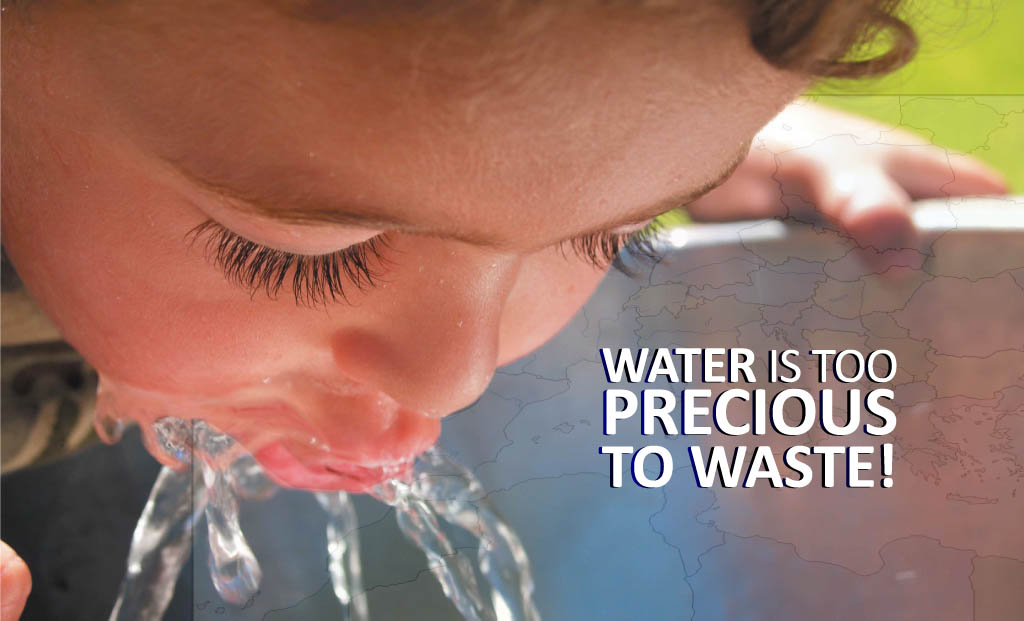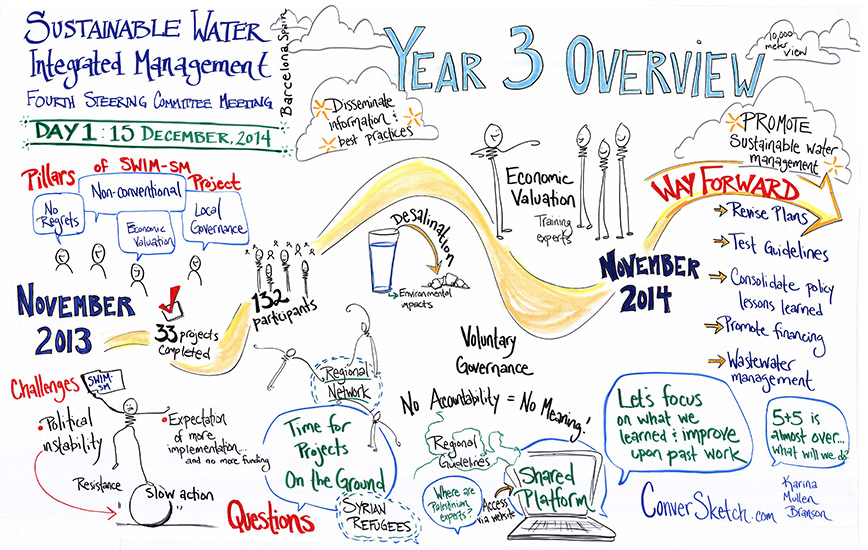The purpose is to support institutional strengthening and contribute towards ensuring that national water strategies and plans properly address issues of sustainable water resource management, based on internationally accepted principles of IWRM, water considerations are promoted and mainstreamed in other relevant sectoral policies and strategies (for example agriculture, tourism and industry), as well as in national development plans.
The activities that are being implemented include the following:
|
Provide ad hoc support and advice for the review of water policies, national water strategies and IWRM plans |
|
Targeted technical assistance for the elaboration of a Wastewater Strategy and/or Action Plan in Egypt, Tunisia and Morocco to advance missing priority elements of their Wastewater Strategy through the preparation of a gap analysis and recommendations report and organisation of a one day national consultation meeting involving all stakeholders in each country. The National consultations have taken place on 5,7 and 11 March respectively in Tunisia, Morocco and Egypt.(under Pillar A: Non-conventional water resources) |
|
Ensure sustainable water management strategies mainstreaming into other sectors’ policies |
|
Support to the planned Inter‐ministerial Committee on water at national level in synergy with GEF MedPartnership: Provision of technical support for policy development for marine pollution control in the waste water sector (activities will evolve according to related developments within MedPartnership). |
|
Support to planned Inter‐ministerial Committee on water at national level in synergy with GEF MedPartnership: Assist promoting inter‐ministerial coordination at national level in PCs in such need, in support to the related GEF / MAP UNEP Med‐Partnership’s initiative. |
|
Develop regional guidelines on measures for improving compliance with water legislations and assess the available enforcement capacity and mechanisms currently practiced in SWIM‐SM region to enforce water legislations with focus on 5 SWIM‐SM PCs. |
|
Develop a comprehensive M&E system for Participatory Irrigation Management (PIM) and Irrigation Management transfer (IMT) Process: - Develop a questionnaire to solicit country inputs on the availability of M&E system, and the indicators used. Consolidate the responses into a regional perspective and diffuse this information through a background document in the framework of an Expert Group Meeting (EGM) planned for the discussion and formulation of a regional M&E system. - Prepare a report on the International M&E systems) to be presented as a background information for a regional workshop on M&E: review international experience in M&E systems including those used for WUA formation and support, in order to identify best practices and suitable indicators that could be used as reference material for the development of regional M&E system involving a checklist of indicators covering the three phases of PIM/IMT process - Conduct a regional expert group workshop involving representatives from national authorities, water users associations, donors, regional and international organisations and national, regional and international experts in order to discuss M&E experiences emanating from the SWIM‐SM regional and international reviews with the aim of adopting a regional M&E system involving a checklist of indicators that suits best the needs and the specificities of SWIM participating countries and for formulating an M&E system. |
|
Institutional strengthening through analysis of IWRM concepts |
|
Regional Assessment on the status of joint ICZM and IWRM planning: Assessment for an improved understanding of integrated planning for natural resources in the Region |
|
Desalination as a non‐conventional water resource: - Assess potential cumulative environmental impacts of mega desalination plants conglomerating around the Mediterranean in synergy with MED‐POL and identification of their mitigation measures. - Convene a regional Expert Group Meeting in Athens on to substantiate and verify the outcomes of the above mentioned activity and a establishment of a dialogue between national, regional and international experts on the prospects of desalination in the Med region. This activity will be carried out in collaboration with UNEP/MAP, MED Pol, H2020, MEDRC and with the participation of the Core Group on desalination set-up by SWIM-SM.. |
|
Mitigation of effects of flood and draught episodes Regional Assessment of past drought & flood episodes and their management with case studies in Morocco, Tunisia, Jordan and Palestine. The assessment will describe the affected areas and identify the population and economic sectors affected the most. |
|
Identification of potential of wastewater reuse: -Regional assessment on the status, the gaps, challenges and barriers to wastewater treatment in rural areas and on private sector involvement in financing depollution investmenst with more in depth analysis in. -Regional assessment on the challenges of treated wastewater reuse in rural areas with more in depth analysis in Tunisia, Lebanon, Egypt and Palestine and focus on the involvement of the private sector in financing depollution investment. The assessment consists of a regional desk study followed by an in depth analysis in Tunisia, Lebanon, Egypt and Palestine. -Study on the legislative framework regulating the recharge of aquifers with adequately treated wastewater in four Partner Countries. |




